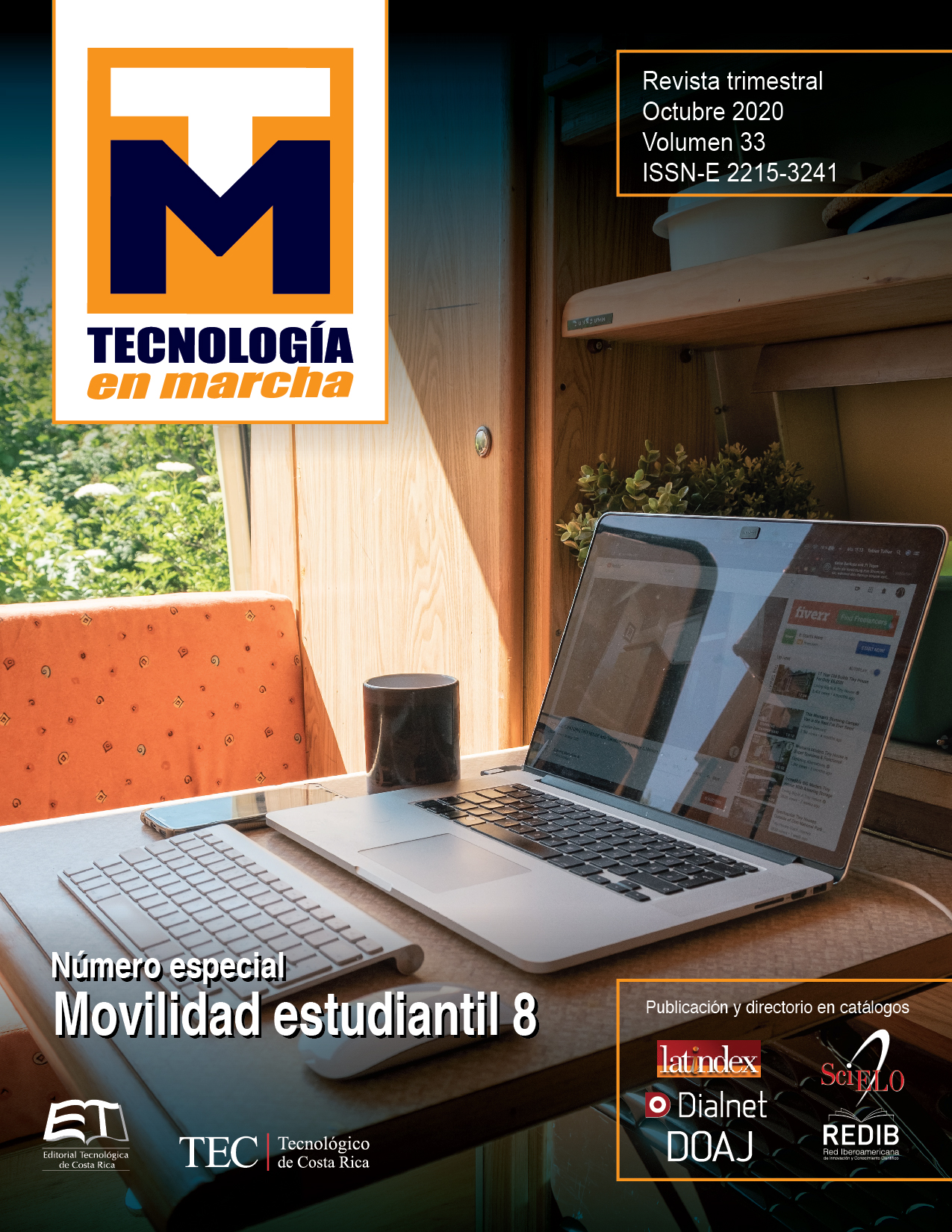Smart Production: Design of a model for the process of implementing Smart Supply Chains
Main Article Content
Abstract
Supply Chain Management and the technology adoption as a tool to increase efficiency is also
known as Smart Supply Chain. This topic has become of importance in companies nowadays.
Thus, this research analyzes this topic within two scenarios. The first one based on the process
used by manufacturing companies in Costa Rica to their Supply Chain and the second was
oriented to understand the implementation of a smart approach according to Austrian expert
criteria. Based on the collected information a model for each scenario was designed with the
most relevant characteristics. Finally, the analysis allowed to conclude that currently real-time
information is essential for Supply Chain Management.
Article Details

This work is licensed under a Creative Commons Attribution-NonCommercial-NoDerivatives 4.0 International License.
Los autores conservan los derechos de autor y ceden a la revista el derecho de la primera publicación y pueda editarlo, reproducirlo, distribuirlo, exhibirlo y comunicarlo en el país y en el extranjero mediante medios impresos y electrónicos. Asimismo, asumen el compromiso sobre cualquier litigio o reclamación relacionada con derechos de propiedad intelectual, exonerando de responsabilidad a la Editorial Tecnológica de Costa Rica. Además, se establece que los autores pueden realizar otros acuerdos contractuales independientes y adicionales para la distribución no exclusiva de la versión del artículo publicado en esta revista (p. ej., incluirlo en un repositorio institucional o publicarlo en un libro) siempre que indiquen claramente que el trabajo se publicó por primera vez en esta revista.
References
Palmquist, D. (2014). 5 Trends Driving the Movement Toward Smart Manufacturing. Obtenido de 5 Trends
Driving the Movement Toward Smart Manufacturing: http://mktforms.gtnexus.com/rs/gtnexus/images/GTNexus5-Trends-Driving-the-Movement-Toward-Smart-Manufacturing.pdf
Lin, Y., Ieromonachou, P., & Sun, W. (2016). Smart manufacturing and supply chain management. International
Conference on Logistics, Informatics and Service Sciences , 1-5.
Wu, L., Yue, X., Jin, A., & Yen, D. (2016). Smart supply chain management; a review and implications for future
research. The International Journal of Logistics Management, Vol. 27, 395-417.
Butner, K. (2010). The smarter supply chain of the future. Strategy & Leadership. Vol. 38, 22-31.
Matthew, J. (2017). Supply Chain Management (SCM) Utilization Based on SCM Drivers in Manufacturing
Industry. Jurnal Pengurusan, Vol. 50, p1-16.
Beske, P., & Seuring, S. (2014). Putting sustainability into supply chain management. Supply Chain
Management: An International Journal, Vol. 19 pp.322-331.
IBM. (2009). The smarter supply chain of the future. Obtenido de The smarter supply chain of the future: https://
www.ibm.com/downloads/cas/AN4AE4QB
Yuvaraj, S., & Sangeetha, M. (2016). Smart Supply Chain Management using Internet of Things(IoT) and Low
power Wireless Communication Systems. IEEE WiSPNET conference, 555-558.
Mussomeli, A., Gish, D., & Laaper, S. (2016). The rise of the digital supply network. Obtenido de The rise of
the digital supply network: https://www2.deloitte.com/content/dam/insights/us/articles/3465_Digital-supplynetwork/DUP_Digital-supply-network.pdf
Martínez, C. (2006). El método de estudio de caso: Estrategia metodológica de la investigación científica.
Pensamiento y Gestión, 20, 165-193.
Yin, R. K. (1994). Case Study Research: Design and Methods. SAGE Publications.
Villarreal, O., & Landeta, J. (2010). El estudio de casos como metodología de investigación científica en
dirección y economía de la empresa. Una aplicación a la internacionalización. Investigaciones Europeas de
Dirección y Economía de la Empresa, Vol 16, 31-52.
Quintana, A. (2006). Metodología de Investigación.
Gliem, J. A., & Gliem, R. R. (2003). Calculating, Interpreting, and Reporting Cronbach’s Alpha Reliability
Coefficient for Likert-Type Scales. Midwest Research to Practice Conference in Adult, Continuing, and
Community Education.
Madrigal, J. (2012). Assessing Sustainability of the Continuous Improvement Through the Identification of
Enabling and Inhibiting Factors. Obtenido de Assessing Sustainability of the Continuous Improvement Through
the Identification of Enabling and Inhibiting Factors.
Méndez, C., & Rondón, M. (2012). Introducción al análisis factorial exploratorio. Revista Colombiana de
Psiquiatría, 197-207.

